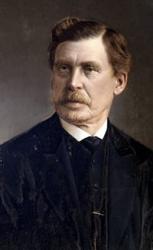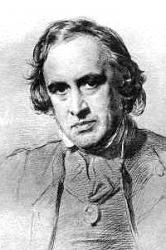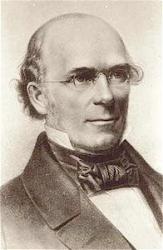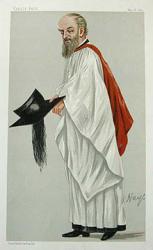Planning worship?
Check out our sister site, ZeteoSearch.org,
for 20+ additional resources related to your search.
- |
User Links
Person Results
H. Elvet Lewis
1860 - 1953 Person Name: Howell E. Lewis Author of "Friend of the Home" in The Cyber Hymnal Lewis, Howell Elvet, M.A., born April 14, 1860, and educated for the Congregational Ministry. After holding several charges in the country, he removed to London in 1898. His Sweet Singers of Wales, 1889, contains translations of standard Welsh hymns. They are well done, and worthy of attention on the part of hymn-book compilers. Mr. Lewis is M.A. of the University of Wales. [Rev. T. G. Crippen]
--John Julian, Dictionary of Hymnology, New Supplement (1907)
=================
Howell Elvet Lewis, CH (14 April 1860 – 10 December 1953), widely known by his bardic name Elfed, was a Welsh Congregational minister, hymn-writer, and devotional poet, who served as Archdruid of the National Eisteddfod of Wales from 1924 to 1928.
Elfed was born on 14 April 1860, the eldest son of twelve children of James and Anna Lewis, of Y Gangell, near Blaenycoed, Carmarthenshire. His father was a farm labourer and his mother was a local shopkeeper. He had a very limited early education, but through self-study and attendance at the local chapel schoolroom he managed to gain entry to Newcastle Emlyn Grammar School at the age of 14. Two years later he succeeded in an examination for admission to the Presbyterian College, Carmarthen, where he trained for the ministry.
Elfed was ordained in 1880 and was made pastor of St John’s English Congregational Church in Buckley, Flintshire, where the local Secondary School Elfed High School is named after him. In 1884 he moved to minister at Fish Street Church, Hull. He returned to Wales in 1891 as minister of the English Congregational Park Chapel, Llanelli. In 1898 he accepted a calling to Harecourt Chapel in London, where he remained until 1904. In 1904 he became minister of Tabernacle Chapel (Capel y Tabernacl in Welsh) – a Welsh language Congregational chapel in King's Cross, London. He remained at Y Tabernacl until his retirement in 1940. He retired to Penarth, where he became a member of Ebeneser Chapel, Cardiff.
Apart from serving as a church minister Elfed's ministry included two periods as chair of the London Missionary Board in 1910 and 1922. He was one of three representatives of the Congregational Union of England and Wales invited to visit Madagascar to celebrate the centenary of the arrival of the first missionaries to the country. He was elected President of the National Free Church Council, 1926–27, President of the Welsh Union of the League of Nations, 1927–28, and chairman of the Congregational Union in 1933.
Elfed's literary output was prolific: he wrote essays, historical treaties, obituaries, devotional works and poetry. He won the National Eisteddfod Crown consecutively in 1888 (Wrexham) and 1889 (Brecon), and the Chair in 1894 (Caernarfon).[5] He was inaugurated into the bardic order of the Gorsedd in 1888 and enthroned as its Archdruid in 1924, a position which he held until 1928.
Elfed's greatest contribution to Welsh literature was in the field of hymnody and hymnology. He published his first hymn, O Dywysog Pob Daioni, in 1881 during the first year of his ministry, he went on to write a large number of original hymns in Welsh and in English and to translate hymns between the two languages, many of which are still popular with congregations today. Among his best known original Welsh language hymns is the patriotic hymn Cofia'n gwlad Benllywydd tirion (described as "a kind of second national anthem"); while his original English hymn Lord of Light, Your Name Outshining is widely used in hymn books on both sides of the Atlantic. A number of Welsh hymns translated into English appeared in a series of articles published in the magazine Sunday at Home, and were republished in book form in 1889 by the Religious Tract Society as Sweet Singers of Wales.
The University of Wales awarded Elfed three honorary degrees: MA (1906), D.D. (1937) and Ll.D (1949). He was the first person to achieve such an honour from the University. He was created a Companion of Honour in 1948.
Marriage and family
Elfed married three times.
Elfed died on 10 December 1953. He was cremated and his ashes were scattered in Blaenycoed
Principal publications:
Welsh
Caniadau (2 vols, 1895-1901)
English
My Christ and other Poems (1891)
Israel and other Poems (1930)
Songs of Assisi (1938)
--en.wikipedia.org/wiki/ (excerpts)
See also in:
Wikipedia
H. Elvet Lewis
Anonymous
Composer of "FFIGYSBREN" in The Cyber Hymnal In some hymnals, the editors noted that a hymn's author is unknown to them, and so this artificial "person" entry is used to reflect that fact. Obviously, the hymns attributed to "Author Unknown" "Unknown" or "Anonymous" could have been written by many people over a span of many centuries.
Anonymous
George Matheson

1842 - 1906 Person Name: G. M. Author of "Gather us in, Thou Love that fillest all" in Mawl a chân = praise and song Matheson, George, D.D., was born at Glasgow, March 27, 1842, and although deprived of his eyesight in youth he passed a brilliant course at the University of Edinburgh, where he graduated M.A. in 1862. In 1868 he became the parish minister at Innellan; and subsequently of St. Bernard's, Edinburgh. He was the Baird Lecturer in 1881, and St. Giles Lecturer in 1882. He has published several important prose works. His poetical pieces were collected and published in 1890 as Sacred Songs, Edinburgh: W. Blackwood. In addition to his hymn "O Love that wilt not let me go" (q. v.), four others from his Sacred Songs are in Dr. A. C. Murphey's Book of Common Song, Belfast, 1890.
--John Julian, Dictionary of Hymnology, Appendix, Part II (1907)
=======================
Matheson, G., p. 1579, i. In addition to Dr. Matheson's hymn, "O Love, that wilt not let me go," p. 1583, i,, the following from his Sacred Songs, 1890, have come into common use since 1892:—
1. Come, let us raise a common song. Brotherhood.
2. Father divine, I come to Thee. Strength for Life. This, in Horder's Worship Song, 1905, is altered to”Saviour divine, I come to Thee."
3. Gather us in, Thou Love that fillest all. One in Christ.
4. Jesus, Fountain of my days. Christian's Polestar.
5. Lend me, O Lord, Thy softening cloud. The Fire and the Cloud. In the Sunday Magazine, 1875.
6. Lord, Thou hast all my frailty made. Strength for the Day.
7. Make me a captive, Lord. Christian Freedom.
8. There are coming changes great. The Glad New Time.
9. Three doors there are in the temple. Prayer.
Dr. Matheson informed us that these hymns, together with the rest of his Sacred Songs, 1890, were written at Bow, Dumbartonshire, in 1890. The 3rd ed. of the Sacred Songs was published in 1904. He died suddenly at Avenelle, North Berwick, Aug. 28, 1906.
--John Julian, Dictionary of Hymnology, New Supplement (1907)
George Matheson
W. H. Turton
1856 - 1938 Person Name: Col. W. H. Turton Author of "O thou, who at thy Eucharist didst pray" in The English Hymnal Turton, W. H., a Lieut. in the Royal Engineers, has published A Few Hymns written by A Layman between the Festivals of All Saints, 1880 and 1881. This contains 12 hymns. The Second Series, "written between the Festivals of All Saints, 1881 and 1882," also contains 12 hymns, and the Third Series, 1882-1883, another 12. These hymns are worthy of attention. Those which have passed into common use include;—
1. And now our Eucharist is o'er (1881-1882). Holy Communion.
2. 0 Thou who at Thy Eucharist didst pray. For Unity. "This hymn was used at S. Mary Magdalene's, Munster Square, N. W., in the Anniversary Service of the English Church Union, June 22,1881. It is intended to be sung after the ‘Agnus Dei,' at a choral celebration." In the 1889 Supplemental Hymns to Hymns Ancient & Modern it reads "Thou, Who at Thy first Eucharist didst pray."
"This hymn was used at S. Mary Magdalene's, Munster Square, N. W., in the Anniversary Service of the English Church Union, June 22,1881. It is intended to be sung after the ‘Agnus Dei,' at a choral celebration." In the 1889 Supplemental Hymns to Hymns Ancient & Modern it reads "Thou, Who at Thy first Eucharist didst pray."
These hymns are in the Altar Hymnal, 1884, together with a third, "Behold! the star is shining." (Epiphany.) Lieut. Turton's signature on A Few Hymns is "R. E." and his publishers, The Church Printing Co., London.
--John Julian, Dictionary of Hymnology, Appendix, Part II (1907)
W. H. Turton
William Pierson Merrill
1867 - 1954 Person Name: W. P. Merrill, 1867- Arr. by of "Lord, What a Change Within Us One Short Hour" in The Mennonite Hymnary, published by the Board of Publication of the General Conference of the Mennonite Church of North America
William Pierson Merrill
Margaret Cropper
1886 - 1980 Person Name: Margaret B. Cropper Author of "Sing to our God, the Father, Son and Spirit" in Sing for Joy
Margaret Cropper
John Page Hopps

1834 - 1911 Author of "Father of mercy, Father of love!" in Hymns of the Spirit for Use in the Free Churches of America Hopps, John Page, was born in London, Nov. 6, 1834, and educated at the G. Baptist College, Leicester. Commencing public work in 1856, after a brief ministry at Hugglescote and Ibstock, in Leicestershire, he became colleague with George Dawson at the Church of the Saviour, Birmingham. From 1860 to 1876 he ministered to Unitarian congregations at Sheffield, Dukinfield, and Glasgow. Since 1876 he has preached in Leicester. Mr. Hopps has published many books and pamphlets, chiefly volumes of Sermons and Lectures. Most of his smaller works are controversial. In 1863 he commenced a monthly periodical called The Truthseeker. He has compiled the following hymnbooks for Congregational, Mission, or School purposes:—
(1) Hymns for Public Worship and the Home, 1858; (2) Hymns of Faith and Progress, c. 1865; (3) Hymns for Public Worship, 1873; (4) One hundred Hymns for Sunday Schools, 1873; (5) Hymns, Chants and Anthems for Public Worship, 1877; (6) The Children's Hymn Book, 1879; (7) The Young People's Book of Hymns, 1881; (8) and six different editions of Hymns for Special Services (for Sunday afternoon and evening gatherings in the Temperance Hall and Floral Hall, Leicester).
Mr. Hopps has himself written various hymns, some of considerable merit. Several have appeared in Congregational, Baptist, Unitarian and other collections. Among the best known are the following:—
1. Cold and cheerless, dark and drear. Winter.
2. Father, lead me day by day. Child's Prayer for Divine Guidance.
3. Father, let Thy kingdom come. God's Kingdom desired.
4. God bless the little children. Prayer for Children.
5. We praise Thee oft for hours of bliss. The blessings of Sorrow.
These hymns are from his Hymns, Chants, and Anthems, &c. 1877, and the Hymns for Special Services. The most popular is No. 2.
[Rev. W. R .Stevenson, M.A.]
--John Julian, Dictionary of Hymnology (1907)
John Page Hopps
Richard Chenevix Trench

1807 - 1886 Person Name: Richard C. Trench, 1807-1886 Author of "Lord, What a Change Within Us One Short Hour" in The Mennonite Hymnary, published by the Board of Publication of the General Conference of the Mennonite Church of North America Trench, Richard Chenevix, D.D. was born in North Frederick Street, Dublin, on Sept. 9th, 1807, during a visit of his parents of some mouths to Ireland. His father was Richard Trench, 6th son of Frederick Trench, of Woodlands, Co. Galway; his mother Melesina, only grandchild and heiress of Richard Chenevix, Bishop of Waterford, and widow of Colonel St. George. On his mother's side he was almost purely French, the grandfather of Bishop Chenevix of Waterford, Philip Chenevix of d'Eply of Loraine having only taken refuge in England on the revocation of the Edict of Nantes. The Huguenot refugee families married for a long time within themselves, and in Mrs. Richard Trench, four distinct foreign strains were blended. Her sons (the Archbishop and his brothers, besides his two sisters) were the only descendants of the Refugee Philip, either in the male or female line, all the other branches having come to an end. Trench's home in childhood was Elm Lodge, close to the village of Bursledon, not far from Southampton. In February, 1816 he proceeded to Twyford School, and in 1819 to Harrow, where he won great distinction. In October 1825 he was entered at Trinity College, Cambridge. His mother's correspondence is full of references to a little periodical called The Translator, begun in 1825, or immediately on his becoming an undergraduate. She was his ardent co-worker both as contributor and critic. In 1826 he had acquired Spanish, and in that year applied himself to preparing and publishing a volume of Miscellanies, of which the "profits were to be sent to the committee formed for the relief of the exiled Spaniards." On May 27th, 1827, his mother died at Malvern. The Letters and Memorials (1888) give vivid and exciting details of his continuous interest and daring personal service and sacrifices on behalf of Spain. It was during the winter days of 1829-30 that the consultations and schemes respecting Spain were discussed in John Sterling's apartment. Robert Boyd, Trench's cousin, threw himself and his entire fortune into the plot by purchasing a small ship in the Thames and storing it with arms, in which General Torrijos and fifty picked Spaniards were to sail for the new adventure of the Golden Fleece. The enterprise ended tragically. Boyd and others perished by the inevitable vengeance of the Spanish sovereign when captured. By the hand of God, Trench was safe in Gibraltar.
Till far up in young manhood he was undecided as to his calling, Law rather than Divinity colouring his thoughts and plans. He left Cambridge on February 1st, 1829, and rejoined his widowed father at Elm Lodge, near Southampton. He married, at the Abbey Church, Bath, on May 31st, 1832, his own cousin, Frances Mary Trench, daughter of his uncle, Francis Trench (2nd son of Frederick Trench, of Woodlawn, co. Galway, Ireland, and next brother to the 1st Lord Ashtown). On October 7th, 1832, he received Deacon's Orders in Norwich Cathedral at the hands of the aged Bishop Bathurst of Norwich. His first curacy was at Hadleigh, Norfolk, with H. J. Rose. He was ordained priest early in July, 1835, by Bishop Sumner, of Winchester. He published in 1835 The Story of Justin Martyr, and other Poems (Moxon). This was (practically) his first book. In 1838 followed Sabbation, Honor Neale, and other Poems, with Notes. In 1840 appeared his first prose work, Notes on the Parables of our Lord, subsequently companioned with Notes on the Miracles of our Lord (1846). In 1841 "the loving discipline of pain" visited his heart and hearth by the death of his eldest born, a deep sorrow which gave its subtlest and finest inspiration to his Elegiac Poems. A third volume of poetry, Poems from Eastern Sources, the Steadfast Prince, and other Poems, was published early in 1842; and a fourth, Genoveva, later in the same year. Early in 1843 he delivered his Five Sermons before the University of Cambridge, published in 1844. In 1844 also was published Exposition of the Sermon on the Mount, drawn from the Writings of St. Augustine, with Observations. In this same year he became Vicar of Itchen Stoke.
In 1845 he delivered a lecture "On Language as an instrument of Knowledge," which expanded into his famous and suggestive Study of Words. In 1846 he was appointed Professor of Divinity at King's College, London, later changed into "Professor of the Exegesis of the New Testament,” which he held until 1858. The friendship between Trench and Maurice here was very beautiful. In 1846 also came the Hulsean Lectures, their subject being Christ "the Desire of all Nations." In 1849 appeared his Sacred Latin Poetry. This is an inestimable book. In 1852, Lessons on Proverbs and Study of Words, and in 1855 English Past and Present appeared. His Synonyms of the New Testament (1854) was a permanent contribution and inspiration to Philology and Theology. Life's Dream: the Great Theatre of the World, from the Spanish of Calderon, with an Essay on his Life and Genius, was published in 1856; 2nd ed. in 1880. The Crimean war drew from him his finest verse, Poems written during the Russian War (1854-55). In 1856 he was appointed Dean of Westminster. In 1861 was published his Commentary on the Epistles to the Seven Churches in Asia. On New Year's Day, 1864, he was consecrated Archbishop of Dublin in Christ Church Cathedral. He instantly took a foremost place in the regard of the entire community. His published Sermons, including his Studies on the Gospels (1867), are amongst the most thoughtful and quietly eloquent in our language; as are his Lectures on Plutarch (1873), and others. Timolem (1881) was his last poem. His final confirmation was in St. Bartholomew's Church on May 16th, 1884. On November 28th, 1884, he resigned his Archbishopric. He died in London, March 28, 1886. Few have left behind them a more stainless, a more loveable, a more enviable memory. He was sweetness and light embodied. [Rev. A. B. Grosart, D.D., LL.D]
In the strict sense of the word Archbishop Trench, although a poet, was not a hymn-writer. Some of his poetical pieces are used as hymns, but their use is limited. These include:—
1. High thoughts at first, and visions high. Ordination. Appeared in his Story of Justin Martyr, &c, 1835, p. 53, in 1 stanza of 8 lines, and entitled "To a Friend entering the Ministry." Its use as a hymn is in an abbreviated form.
2. I say to thee, do thou repeat. Safety in Divine Guidance. Published in his Story of Justin Martyr, &c, 1835, in 10 stanzas of 3 lines, again in his Poems, 1865, p. 98, and ed. 1885, i. p. 140. It is headed, "The Kingdom of God."
3. Let all men know that all men move. Love of God. Published in his Story of Justin Martyr, &c, 1835, p. 111.
4. Lord, weary of a painful way. Evening. Appeared in his Sabbation, Honor Neale, &c, 1838, p. 117; and Poems, 1885, i. p. 207.
5. Not Thou from us, 0 Lord, hut we. Divine Love. Published in his Story of Justin Martyr, &c, 1835, p. 52, in 14 1., and in his Poems, 1885, i. p. 109.
6. Pour forth the oil, pour boldly forth. The Law of Love. Appeared in his Sabbation, Honor Neale, and Other Poems, 1838, p. 132, in 5 stanzas of 4 lines, and entitled "The Law of Love," also in his Poems, 1865, p. 150, and ed. 1885, i. p. 215. From this is taken the hymn, Make channels for the stream of love."
7. Some murmur when their sky is clear. Contentment. Published in the Sabbation, Honor Neale, and Other Poems, 1838, p. 116, in 2 st. of 8 1., in his Poems, 1865, p. 113, and ed. 1885, i. p. 142.
8. Thou inevitable day. Death. From his Sabbation, Honor Neale, &c, 1838, p. 99, in 14 stanzas of 3 lines, and headed, "The Day of Death." Also in Poems, 1885, i. p. 213.
-- Excerpts from John Julian, Dictionary of Hymnology (1907)
Richard Chenevix Trench
Theodore Parker

1810 - 1860 Author of "O Thou Great Friend to All" in The Mennonite Hymnary, published by the Board of Publication of the General Conference of the Mennonite Church of North America Parker, Theodore, M.A., was born at Lexington, Massachusetts, Aug. 24, 1810; laboured with his father as a farmer and mechanic; entered Harvard College in 1830, but continued his work at home and attended the College for examinations; attended the Divinity School from 1834 to 1836, and became pastor of the Unitarian congregation in West Roxbury, June 21, 1837. He received the degree of M.A. from his College in 1840. Changes in his theological views led him to undertake the pastorate of a congregation in Boston, in January 1846. He continued his writing, preaching, and lecturing till 1859, when bleeding at the lungs compelled him to seek relief in Europe. He died at Florence, May 10, 1860. His publications were numerous, and have been republished in Great Britain. An extended list is given, together with 12 poetic pieces, in Putnam's Singers and Songs of the Liberal Faith, Boston, U. S. A., 1875. His life has been published by Weiss, and by Frothingham. A few of his poetical pieces are given in American Unitarian hymn-books.
These include :—
1. In darker days and nights of storm. Almighty Love. "Introduced in a sermon which Mr. Parker preached, entitled ‘The Practical Effects of the Ecclesiastical Conception of God.’”
2. 0 Thou great Friend of all the sons of men. Jesus the Way, the Truth, and the Life. This in the original is a sonnet. Altered for use as a hymn, it is widely used by American Unitarian; and is also given in some English hymnbooks.
-- John Julian, Dictionary of Hymnology (1907)
Theodore Parker
Henry Montagu Butler

1833 - 1918 Person Name: H. Montagu Butler, *1833-1918 Author of "Lift up your hearts!" in The Beacon Song and Service book Butler, Henry Montagu, D.D., was educated at Trinity College, Cambridge, and graduated B.A. as Senior Classic in 1855, and became a Fellow of his college in 1855. Taking Holy Orders in 1859, he became Head Master of Harrow School in 1859. This position he held until 1885, when he was preferred to the Deanery of Gloucester. He held the deanery for a short time only, and became Master of Trinity College, Cambridge, on the death of Dr. W. H. Thompson in 1886. Dr. Butler has also held the important appointments of Hon. Chaplain to the Queen; Examining Chaplain to Archbishops Tait and Benson; Select Preacher at Oxford, 1882; and Preb. of Holborn in St. Paul's Cathedral. Dr. Butler edited the 3rd edition of Hymns for the Chapel of Harrow School, 1865, and the 4th edition, 1881. To the Harrow Hymn Book Dr. Butler contributed:—
1. Art thou the Healer that should come. St. John Baptist.
2. Ask and ye surely shall receive. Prayer. Last St. by J. Montgomery.
3. Jesus died for us and rose again. Death and Burial.
4. Lovest thou Me ? the risen Saviour cried. St. Peter.
5. 0 merciful and holy. Founder's Day.
6. Rejoice today with one accord. Founder's Day.
7. The night of agony hath passed. Good Friday.
8. Where shall we find our mightiest saint? St. Paul.
Of these Nos. 2 and 3 were given in the 3rd edition of the Harrow Hymn Book, 1865, and the rest were added in 1881. Nos. 3, 5, 6 and 8 are also in Hymns for the Use of Sherborne School, 1888, Nos. 5 and 6 being much altered. Dr. Butler's hymns are very lyrical and spirited and are admirably suited to their purpose.
--John Julian, Dictionary of Hymnology, Appendix I. (1907)
Henry Montagu Butler


 My Starred Hymns
My Starred Hymns


